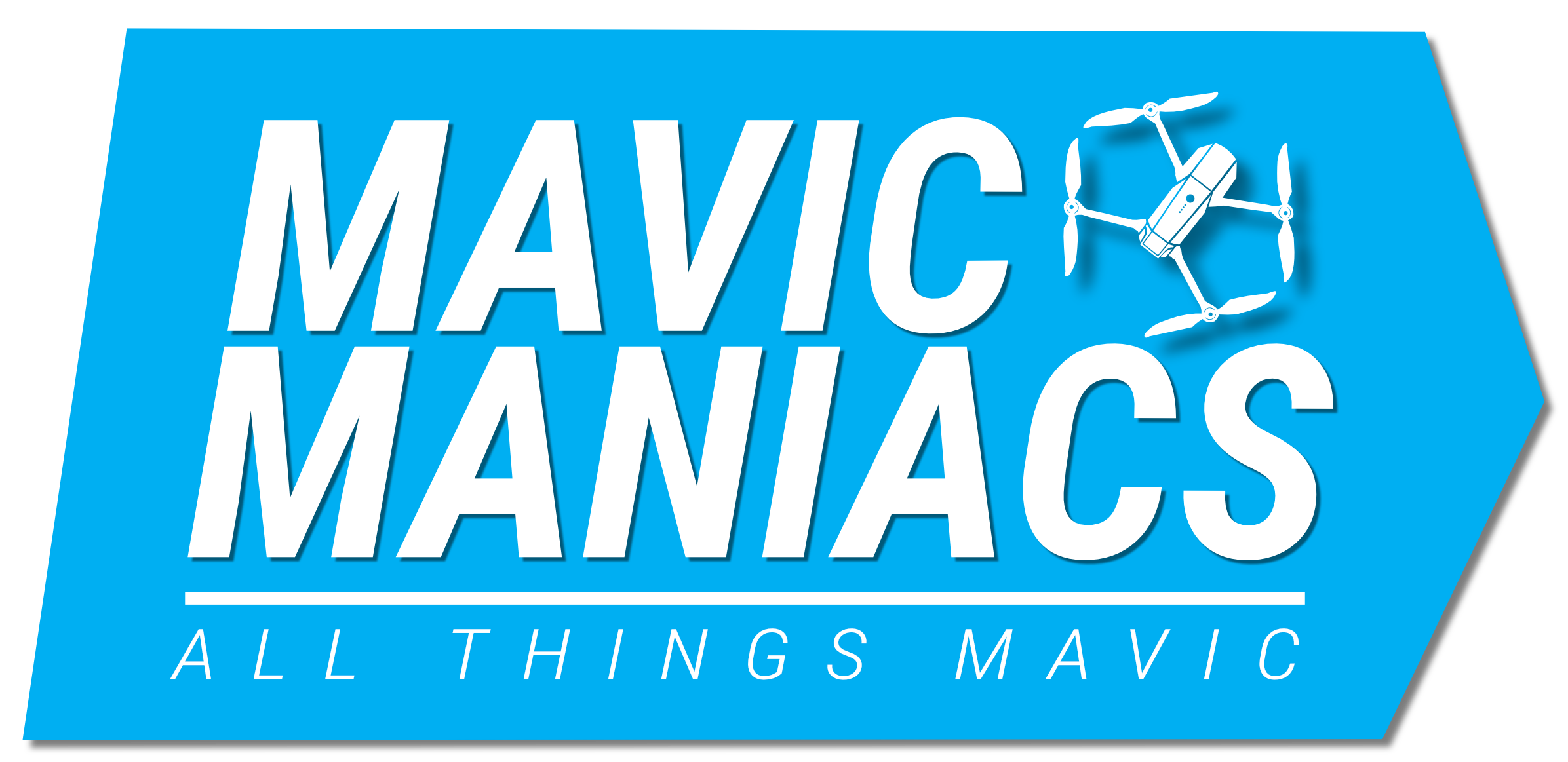
Drone College Courses – 2 Free Courses Offered by Grossmont College
March 6, 2019I guess it was inevitable. First there were online courses. Then in-person seminars started popping up. Now it looks like you can find drone college courses too! Grossmont College, in El Cajon California, is now offering a free drone piloting course.
In my Get the FAA Drone License – Make Money Legally With Your Mavic post, I really didn’t touch on colleges as a resource. I can’t believe I hadn’t thought of colleges offering drone related courses. It just goes to show you that drones are a growing market and they’re here to stay. Let’s see what we can find out about this free offering…
THIS POST MAY CONTAIN AFFILIATE LINKS. PLEASE SEE OUR AFFILIATE DISCLOSURE FOR MORE INFORMATION.
 What is the Class About?
What is the Class About?
Actually there are multiple courses. The primary course is aimed novices and is designed to train them to become FAA-certified commercial drone pilots. Basically, it’s aimed toward helping students obtain their FAA Part 107 certification and takes about 100 hours to complete.
The additional tracks focus on the following:
- Cinematography – A course on how to use drones for various cinematic categories including; weddings, movies, real estate, commercials and so on. This course is currently being taught by an Emmy-nominated cinematographer who works with several media companies including; Fox Sports Net, HBO and more.
- Surveying – This course focuses on mapping and surveying for use in areas such as construction, farming, military and security.
As it stands right now, that’s 2 courses being offered at this university. Drones are even provided for class use. Add to that additional courses that are in the works, such as programming and technology that make autonomous aircraft function, and you can really see how drones are starting to become main stream. It will be interesting to see what other courses pop up over time.
Check out this news clip from KUSI News, San Diego:
 How Did These Drone College Courses Come to Be?
How Did These Drone College Courses Come to Be?
These courses were made possible by a $6 million U.S. Department of Labor Promise grant. With the funding in-hand, high interest from those wanting to be drone pilots and demand from multiple business sectors, Grossmont College was very keen to start these programs.
Don’t forget, thanks to the grant, the primary course is free! Although I am not sure if the additional tracks are free, from what I can tell, based on their released statement, they should be, as they are part of the Drone Technology Program.
 What are the Requirements to Take the Courses?
What are the Requirements to Take the Courses?
The grant stipulates the following requirements:
- Students are required to be United States citizens.
Groups being specifically targeted include:
- Veterans
- Native Americans
- Military spouses
- Ex-offenders
- Women
- High school students
- The unemployed/underemployed.
Direct Excerpt from the Grossmont College Website
Grossmont College launches drone program with free piloting classes
Contact: Della Elliott (619) 644-7690 della.elliott@gcccd.edu
Grossmont College’s much-anticipated Drone Technology Program launches Oct. 30, with grant-funded classes offering free, comprehensive instruction designed to train novices to become FAA-certified commercial drone pilots with skills to pursue jobs or to become self-employed.
President Nabil Abu-Ghazaleh said the college is excited to offer the new program at no cost to students, noting that private drone schools typically charge thousands of dollars for the training. Despite the cost, the training is growing in demand with many drone pilots working as freelance contractors, flying drones for small businesses and major companies, alike. Grossmont College’s classes train pilots for two commercial tracks – Unmanned Aerial Systems (UAS) cinematography and UAS surveying and mapping.
“Clearly, the interest and demand are there and with the funding to support developing education and training in this burgeoning career field, we were very keen to start this program,” Abu-Ghazaleh said, adding that as the new curriculum is expanded, classes will be offered next spring in the programming and technology that make autonomous aircraft function.
Grossmont College is unique statewide in offering the classes for free, thanks to a $6 million U.S. Department of Labor Promise grant that was shared by Grossmont and Cuyamaca colleges to create education and industry partnerships to train underserved students for high-skilled, in-demand jobs. The grant – the only one of its kind in California – was among the largest awarded to 23 colleges, universities and workforce partnerships across the country. Partnering with Grossmont College in the local program are the San Diego Maritime Alliance and the East County Economic Development Council.
Javier Ayala, the college’s dean of Career Technical Education and Workforce Development, said it was the large turnout of drone enthusiasts to a Grossmont College workshop two years ago that convinced him a drone technology program would be in demand as a new career training option. Job projections for drone operators is on a vertical ascent as the commercial use of the unmanned aircraft becomes ubiquitous.
From their military origins, drones are now must-have tools in industries such as real estate, filmmaking, photography and even agriculture. Analysts at the consulting group PricewaterhouseCoopers LLP predicted in 2016 that the global market for commercial applications of drone technology could reach $127 billion by 2020.
Grossmont’s program is providing UAS Ground School and FAA 107 certification classes to become licensed commercial drone pilots. Students who complete the ground school module and possess a drone pilot license can then go on to take classes specializing in either UAS cinematography or UAS surveying and mapping.
The cinematography track meets 4-8 p.m. Tuesdays and Thursdays Oct. 30-Feb. 12, 2019 in Bldg. 36, Room 354. Taught by an Emmy-nominated cinematographer who works with Fox Sports Net, HBO and other media companies, this track teaches students how to use drones for weddings, movies, real estate videography, commercials and more. The course covers both basic and advanced cinematography techniques with an emphasis on developing creativity.
The surveying and mapping track meets 4-8 p.m. Mondays, Wednesdays and Fridays Nov. 7-Feb.1, 2019 in Bldg. 36, Room 340. Students in this track train for surveying and mapping large masses of land and waters for such job fields as construction, farming, military and security. Pilots receive extensive flight time and by the end of the program, students will know how to do precision mapping missions and data collection for multiple industries and operations.
The grant funding the Drone Technology Program requires students to be United States citizens and is targeted to groups including veterans, Native Americans, military spouses, ex-offenders, women, high school students and the unemployed and underemployed. Drones are provided to students.
To register, go to https://tinyurl.com/APdronetechnologytraining Deadlines are Oct. 23 for the cinematography track and Oct. 31 for the surveying and mapping track.
For more information, email Kathie.Nino@gcccd.edu or call (619) 644-7549.
Conclusion
It’s nice to see drone education hitting the big leagues, and this one’s free no less! I hope to see more drone college courses in the near future. I truly believe the more education we get out there, the better off the drone community will be.
Do you have any experience with college drone courses? Do you know of courses at a college near you? Do you have any comment related to drone education in general? Please comment below. I’d love to hear what you have to say.
I’d love to start a list of colleges around the world that offer drone courses for my readers. If you have any information please share it by commenting below.
Thank you,
Scott Hinkle
MavicManiacs.com





Drones are becoming a huge thing. A lot of people uses them to take aerial photographs and record videos. Now the drone market is expanding at a fast rate. So many possibilities that can be done with them.
It’s a good thing that the university is providing free classes, specially for people who can’t afford to study (education should be free btw) at a college. This gives them an opportunity to learn something new, it would be interesting to watch how the drones develop overtime, and its uses apart from videography and photography.
I’ve been using my drone for all sorts of things (agriculture, real estate, search and rescue and so on). The industry is only going to grow. The more education we get out there the better for everyone involved.
I agree with you (on the free education too).
Thanks for taking the time to comment,
Scott
Hi, I read your whole about Drone college course. This is an extraordinary course. Students will be able to apply for this important work in real life by learning it. They will be capable to work in different places. At the end of the course, they can work on cinematography and marriage I like it most that this primary course is absolutely free.
Now I am going to share it with my friends.
Thanks for commenting and thank you for sharing my post with your friends.
I agree that this type of curriculum is important today. Drones are popping up in all industries and having qualified pilots with proper training is essential. The additional tracks are nice as well. Cinematography and mapping can be greatly enhanced by using drones (getting shots that otherwise couldn’t be obtained, enhancing safety and so on).
What’s not to like about free?
Thanks again,
Scott
There are actually just 2 classes, both start with the Part 107 ground school which includes study prep for the 107 exam and flight training using Phantom 4 Pro birds. The school has 4 Phantom Pro set ups with multiple batteries, allowing plenty of flight time per student. Once you obtain your Part 107 license, you then continue on with the course that you are enrolled in, the Cinematography track or the Mapping and Surveying track. The total course time is 105 hours. As of right now there are 2 classes of each track going simultaneously. The Cinematography class that I’m in currently meets Tuesdays and Thursdays from 4:00-8:00 PM. We have a dedicated flight area and we split course time between classroom Part 107 study and various advancing flight practice drills.
In order to advance our opportunities in the various settings that will be adopting drone services, we all need to present professional flight operation practices and adherence to all applicable rules and regulations. The drone wave is coming. if you REALLY want to be a part of it professionally, you need to be a professional in the field. That means that you are properly trained in aviation-based safety and preparation practices. I’ve seen many, many 2-3 day classes that people are paying several hundred dollars for and then expecting to be a “professional”. It’s my experience, thus far anyway, that 2 days of flight instruction is not going to be adequate to present a professional operation.
I see this class and others like it as the prerequisite of the future for professional drone operators. Our instructor is also holding classes for a large insurance company that is currently training many of their existing adjusters to obtain their 107 license and complete extensive flight training. They are using a fleet management software service that allows flight operation video to be transmitted to the home home office in real time. This is just one example of the extensive integration that is happening RIGHT NOW in industries that you may not be hearing much about. There are already a handful of students that just graduated from the first class that have been hired and are working for a major utility contractor surveying power lines.
Integration of drone operations is happening RIGHT NOW across many different industries. It’s no accident that these classes are being funded by a $6 million public grant. If you truly want to work in this field on a serious level, it’s vital that you conduct professional, disciplined flight operations and adhere closely to all rules and regulations.
Thank you so much for this detailed information. I’ll adjust the number of classes to the correct number of 2.
You’re absolutely right regarding professional flight operation practices and training. A weekend class doesn’t really cut it.
Thanks again. I think my readers will really benefit from your comment.
Scott
Changes made.
How are you liking the cinematography course? Do you have any hints, tips or words of advice you’d like to share with others that visit this site?
Again, I appreciate Kate the time you took to comment here,
Scott
As of right now it’s been great. Class sizes were capped at 15 students. Right now there are a total 60 students in 4 classes. It’s nice that they kept the classes at a manageable size. This allows for all of us to get adequate time on the drones. Part of the course is an in-depth study of the DJI software and it capabilities. Later in the course we will be going into in-depth filming techniques as well as editing, adding music, etc.
One aspect that I am impressed with and believe is very important is learning the basics of professional flight operations. Standardized flight deck set up, pre-flight check and pre-visual inspection of the job/mission scope. Forming habits now that will be helpful in the future as we grow in this occupation. The school has already had inquiries from companies looking for properly trained drone pilots. They want pilots that are trained and conduct themselves in a manner that shows proper planning, safety and efficiency in their flight operations.
I come from a technical background and find this kind of training to logical and necessary. Those that have a basis as a hobbyist may find this approach to be a bit of overkill but it will definitely be a requirement for long-term success in the field.
If I had any words of advise based on my experience to this point it would that, if you are interested in making a living in this field, there will be PLENTY of opportunity. It will be important, more so in the future than now, to have a strong foundation in planning, safety and procedure. Inspections are shaping up to be a big subject and safe flight techniques around large, tall objects is paramount. Knowing the weather and wind patterns for your day and the area. Being aware of the airspace classification you are operating in and adhering to FAA rules and regulations. Working with a VO any time it’s necessary. This is quickly moving into the professional arena. UAV pilots will have to think and present themselves with a level of professionalism that a manned pilot would.
That’s awesome! The limited number of students per class is a great way to make sure enough attention is given to each one.
You’re so right about learning the basics of professional flight operations. It really does help build a solid foundation and understanding.
Thank you so much for coming back and adding more information. I really appreciate it!
Scott